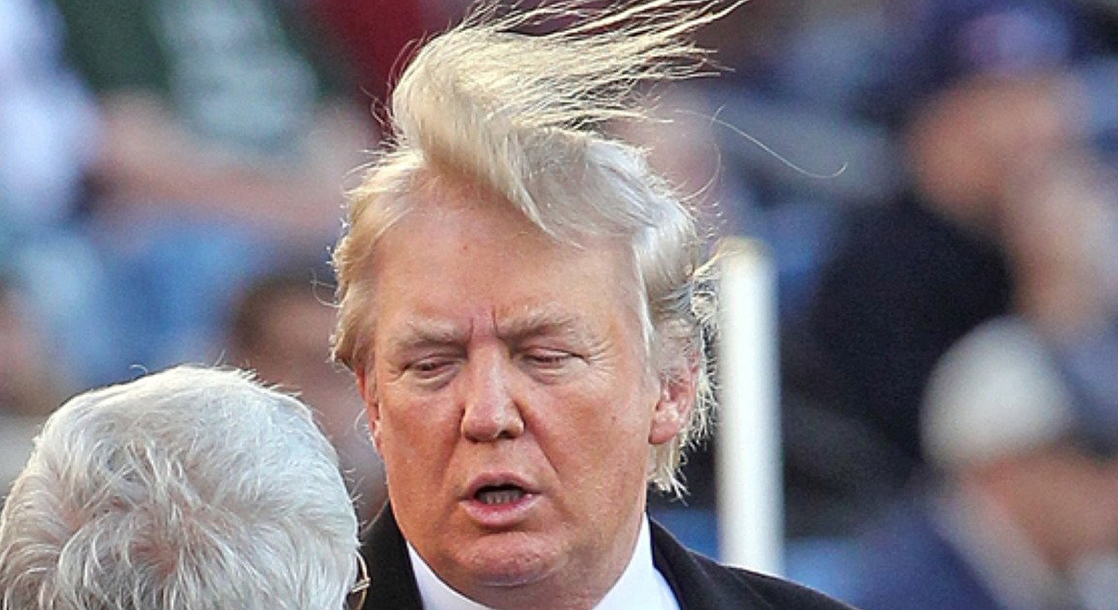Just like so many words and phrases, from “fake news” to “freedom,” media and politics can inject a concept so deeply into the culture that it permeates the culture’s very fabric and loses all meaning. After Trump’s election, our directive, besides hitting the streets and our Facebook pages to express our disdain, was to not “normalize” Trump. The word normalize has been stretched pretty far and fashioned as a bludgeon to be used by anyone on the left against any other faction of the left. Bernie Sanders and Hillary Clinton have been accused of normalizing Trump because they offered to work with him if he wants to pass labor-friendly measures and attended his inauguration, respectively.
Normalization, though, isn’t such a tricky term: the idea, more or less, is that you make the strange or different seem commonplace. The New Yorker’s Hua Hsu had one of the best descriptions of normalization in his essay “What Normalization Means.” He wrote, “It’s on the late-night talk show, when the comedian giggles as he tousles Donald Trump’s hair, signalling that this madman can take a joke; it’s in the lifestyle magazine that works to humanize him and those around him, suggesting that people with furniture dipped in gold are just like us; it’s in the conversations where one person dampens another’s alarmism by wondering, Have you ever actually seen a Klansman?”
If normalization is making the President and his family seem “just like us” instead of providing the necessary context to remind us that he is, in fact, not like us at all, then the real offenders aren’t Democratic politicians hoping to strike a deal, or at least survive the next four years. Many culture blogs and outlets, even some that claim to be a part of the #resistance, are actually pioneering new ways to normalize Trump on a daily basis. We’ve broken down some of those nefarious (even if seemingly harmless) attempts below.
The Politics of Style
In the aftermath of the election of a sexist monster, online outlets aimed at women have seen a boost, particularly if they are offering meaningful political coverage. Teen Vogue has raised its profile more than probably any other, but Jezebel, Cosmo, and The Cut have seen a bump for jumping into the fray. Yet, some of these sites try to have it both ways, normalizing Trump’s family in their lifestyle coverage while running critical essays alongside them.
The Cut, as close to a Hillary surrogate publication you can get this side of Share Blue, has done a lot to normalize Trump’s family. Take their recent news item “When Ivanka Trump Was a Cool Teen, She Reportedly Went Missing in Aspen.” The piece paints Ivanka as “the original cool teen,” and implicitly, this makes The Donald the weary dad. The item is written as it would be if it were about Jennifer Lawrence or Solange: no mention of her or her father’s misdeeds is peppered in, no mention of Ivanka’s anti-female politics is dropped. The same goes for the articles, “So, Ivanka Trump Has Reportedly Hired A Hollywood Stylist,” “Ivanka Trump and Prime Minister Justin Trudeau are Spotted at Canadian-Made Musical Come From Away,” and “Ivanka Trump Says Tale of Her Taking On First-Lady Duties Is Inappropriate.” The Cut also runs its fair share of neutral to positive coverage of First Lady Melania Trump. While The Cut does run coverage that’s critical of the first family and the President, that doesn’t change how these articles normalize them.
If you want those clicks, there is a better way to go about it. Simply compare the average Jezebel or Teen Vogue headline on Melania and Ivanka. While communicating similar information, their headlines have a different point of view: “Ivanka Trump Champions Child Care Benefits for the Rich as Republicans Act Like Children” and “Don’t Take Your Eyes Off of Ivanka Trump for One Fucking Second” at Jezebel and “Ivanka Trump Has Finally Someone to Style Her” (subhead: “But will designers start lending?”) and “Ivanka Trump is Being Compared to Marie Antoinette for Her Latest Instagram” at Teen Vogue. If their competitors can manage less coverage of the First Women and an actively oppositional tone, why is The Cut watering things down?
Sticking to Sports
In every aspect of digital life, there is this same distinct divergence in editorial points of view. Look at sports. Deadspin (like Jezebel, a member of Gawker media) offers sharply different coverage of the Donald and his family than ESPN. On Deadspin you will see headlines like “U.S. President Brags That NFL Teams Are Supposedly Scared of His Tweets” and “Patriots Devin McCourty and Martellus Bennett Won’t Visit Trump White House” and at ESPN it’s “Donald Trump Takes Shot At Colin Kaepernick’s Free Agency Status” and “Press Secretary Says Patriots to be Honored At White House in April.” Again, we see a case of one outlet that infuses its coverage of Trump with the realities of his policies.
In sports, this argument has taken on a life of its own. Writers and readers who like their sports extracted from the broader world and isolated scream, “Stick to sports!” Writers and readers who understand that sports is political in nature, from the potential unionization of college athletes to different officiating standards for white and black quarterbacks, understand the two are inextricably linked.
Writing That’s Served Well Done
Even food blogs make decisions about how Trump and his policies will enter into their coverage. When it was revealed that Trump likes his steak well done, some outlets went with nondescript headlines for nondescript articles, like “Donald Trump Reportedly Eats His Extra-Well Done Steaks With Ketchup” and “Donald Trump Eats His Steak Well Done With Ketchup.” Contrast these approaches with Eater’s piece, “Actually, How Donald Trump Eats His Steak Matters.” Author Helen Rosner’s subhead quickly establishes a clear point of view: “A person who refuses to try something better is a person who will never make things good.” Her thesis is that by ordering a well-done steak, Trump proves that he is willing to ignore the advice of experts, to the detriment of himself (in the case of the meat) and the country (with regards to everything else). Rosner writes, “This is a simple matter of science: Steaks with even a little bit of red in them are better than steaks without. This is a fact, a chemical and physical truth, the result of an alchemy of fat and protein and salt, and the way matter transforms when exposed to heat, and the way our bodies connect the chemicals of taste to the chemicals of pleasure.” Essentially, Rosen implies there is a clear path from well-done steak truther to climate truther.
Donald Trump is not normal. Many editors and outlets believe this means that you should cover him in a way that reflects this. Clearly, some other outlets don’t think his shifts in the way the country is run warrant shifts in the way the country covers him and his family. The latter approach is actually the one that hides the truth. To approach Melania’s fashion choices, Ivanka’s business dealings, or Donald’s food choices the same as, say, Tony Romo’s cuisine preferences or Rihanna’s style is exactly what it means to normalize. In fact, mainstream blogs have no problem criticizing lesser sinners like Gwyneth Paltrow and Johnny Manziel in their coverage; why should the Trumps get a pass, no matter how petty the topic?
Downplay the political aspects of Trump, his family, and his cronies all you want. Just recognize that in hiding the politics of a situation, you are making a political statement of your own.











